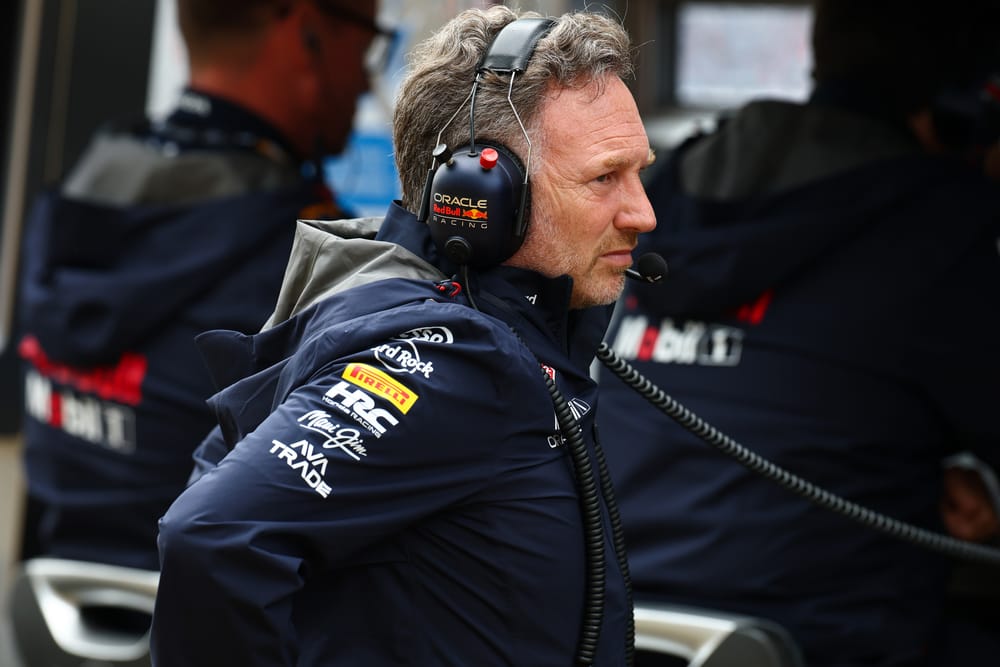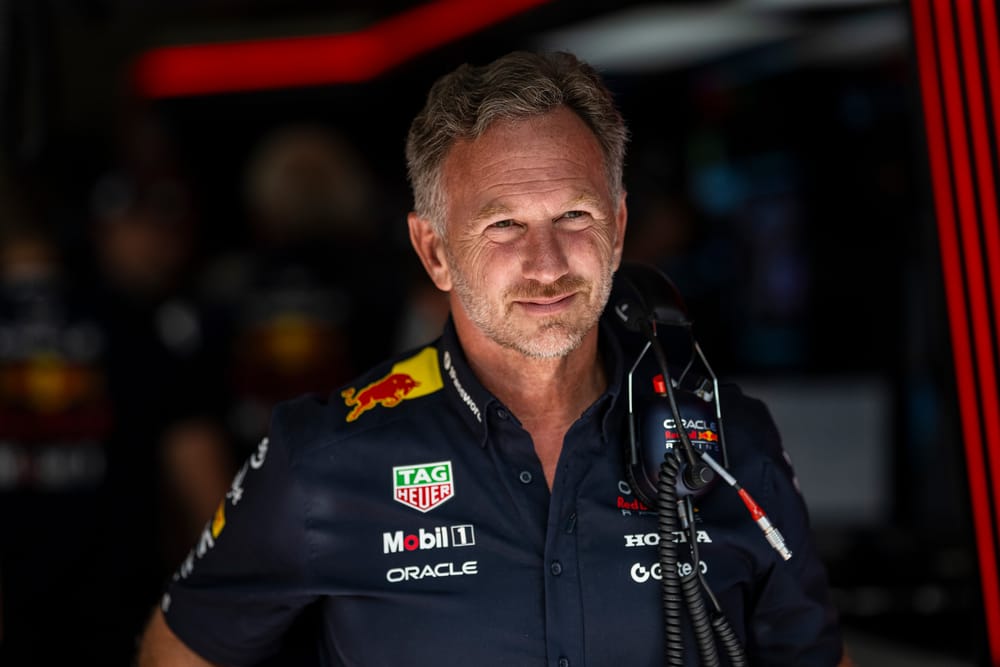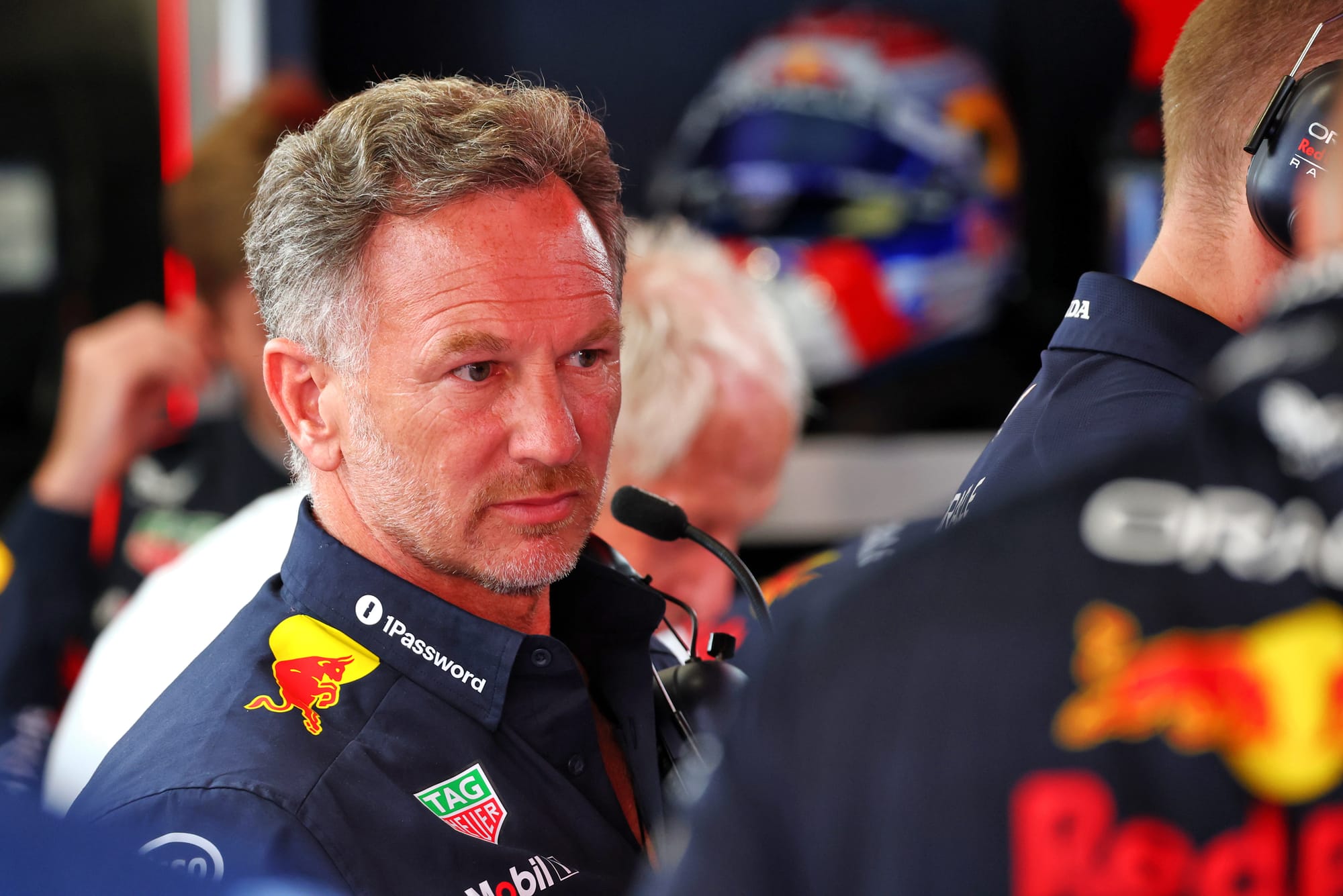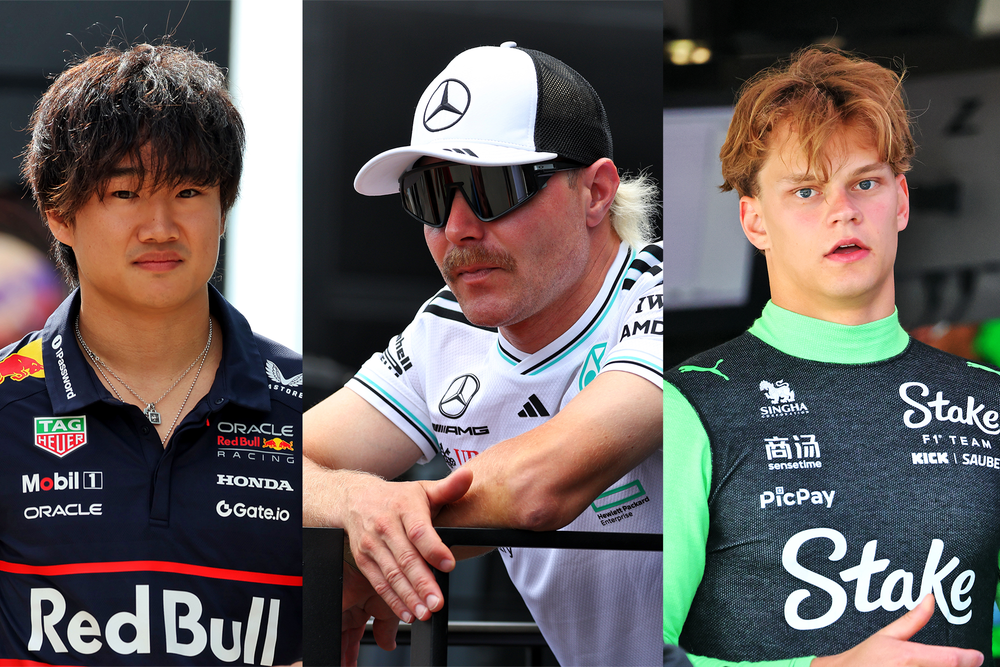After more than two decades at the helm, Christian Horner has been removed from his role as CEO and team principal of the Red Bull Formula 1 team.
That time encompassed two spells of F1 dominance as Red Bull, which took over the former works Jaguar team, transitioned from a midfield squad into a title-winning behemoth on Horner's watch.
But more recently there's been growing internal division, key personnel exits - including Adrian Newey - and a personal scandal.
In the wake of his shock exit, here's our team's thoughts on Horner's legacy, the timing of his exit, and what it says about Red Bull, the state it's in, and the likelihood it keeps hold of Max Verstappen.
Horner built a new F1 powerhouse
Mark Hughes
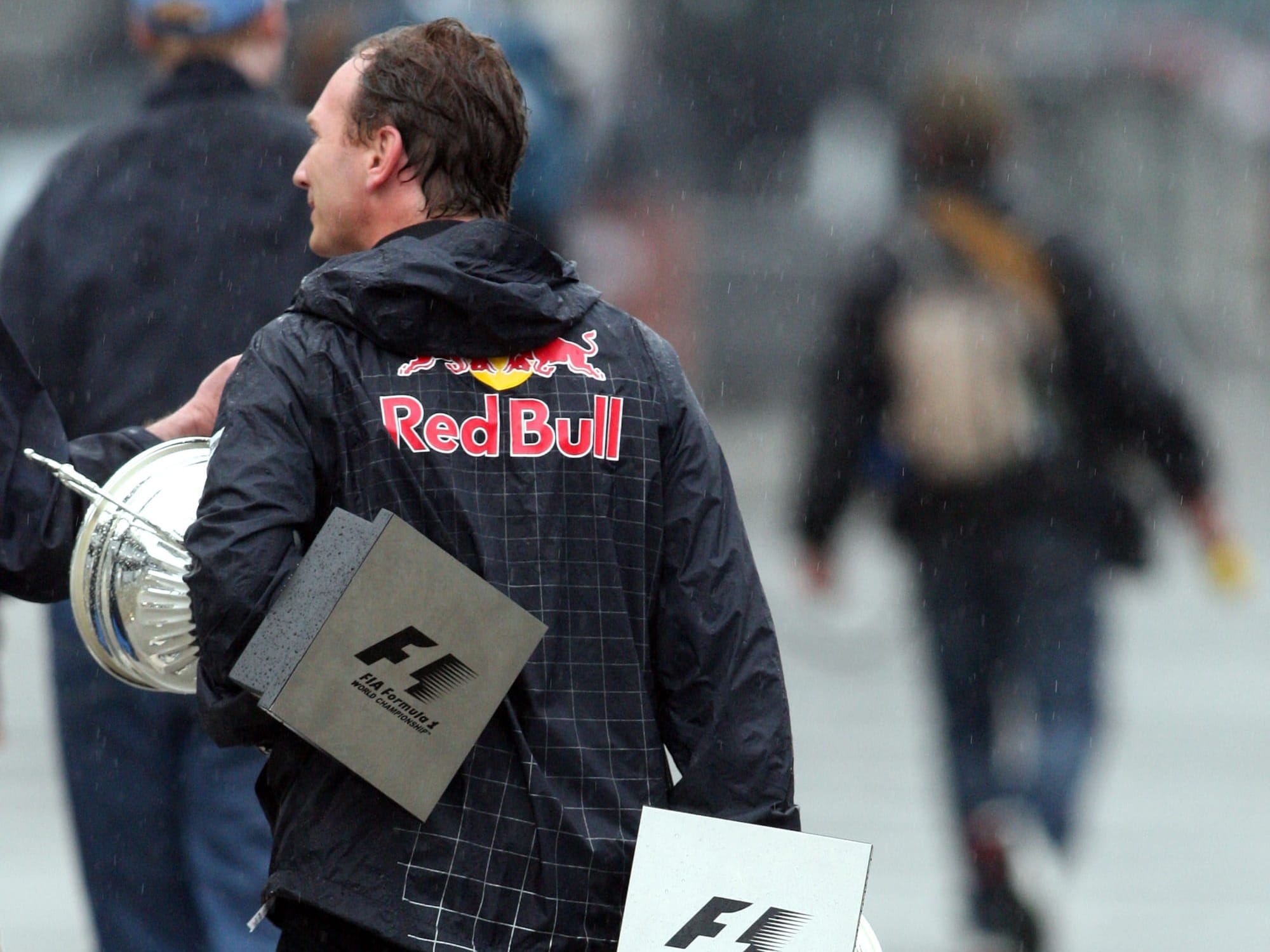
The edifice began to wobble with the death of Red Bull co-founder Dietrich Mateschitz in 2022. The controversy subsequently created by Horner's publicised text conversations with an employee really began to wobble it. Yet the success on track initially just continued as if nothing had happened.
But the poison was spreading and once key people began leaving, so Horner's position became ever-more difficult.
But he is the person largely responsible for turning Mateschitz's benevolence and enthusiasm into solid gold F1 success, with a focus, determination and shrewd racing smarts, gathering all the right people around him to create a new F1 power.
The team is in an extremely challenging place right now.
Something had to give
Gary Anderson
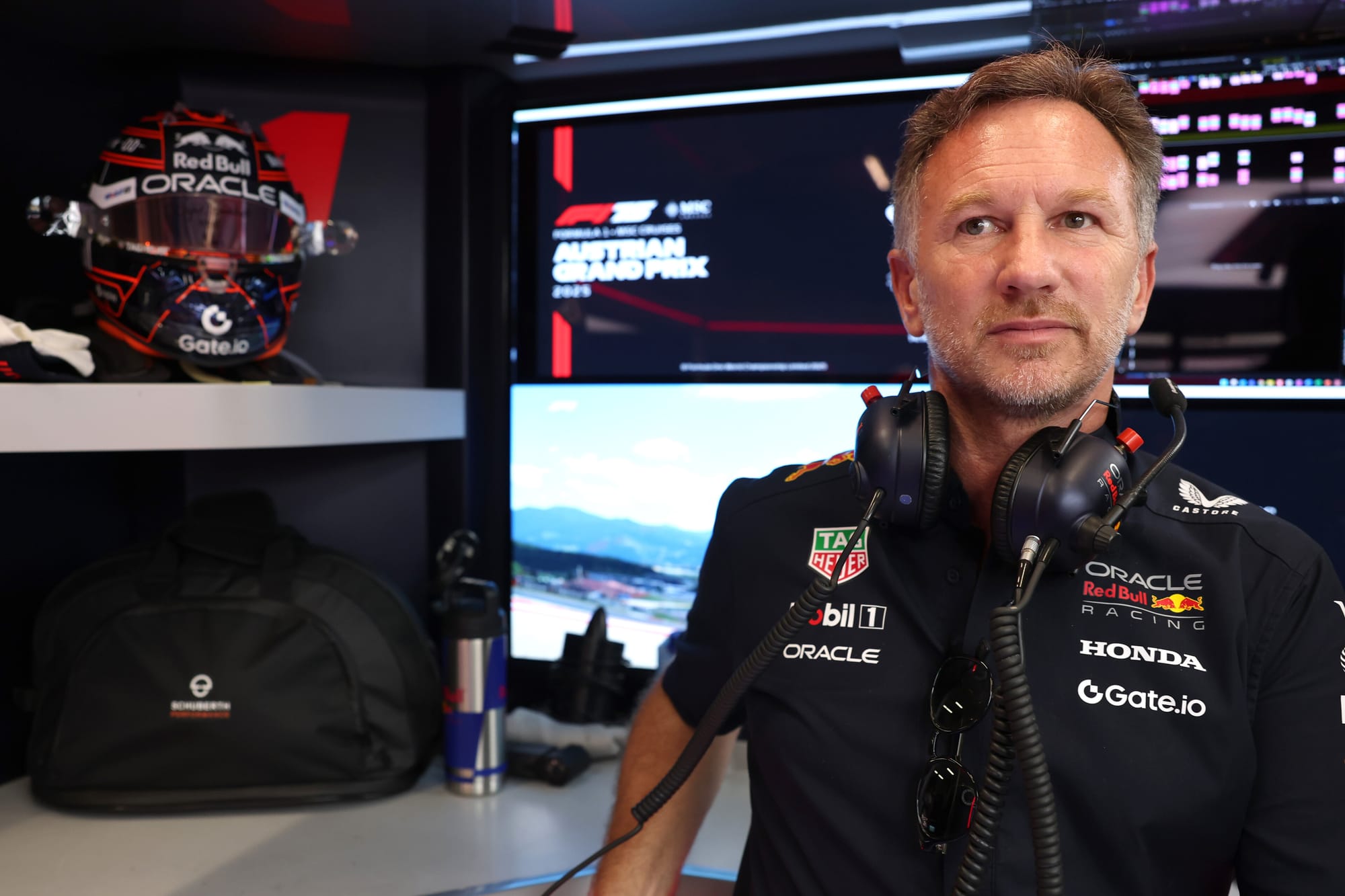
I suppose the writing has been on the wall for about 18 months but Red Bull's success kept him his position. Now that success has gone, what is there left?
I didn’t like it when he started to say Red Bull's success was all down to him and that they wouldn’t miss Adrian Newey; that was just a silly statement. Yes, I might be a little bit biased, but no team principal is more important than the technical chief and the technical team he has around him.
You can't deny the success Red Bull has achieved since it took over from Jaguar, with Horner heading up the team, but when internal politics become the priority then something has to be done.
The Verstappen relationship - both father and son - had soured over those 18 months, so to have any chance to hold onto Max for much longer something had to be done.
Read more: Who are the 10 F1 team principals?
My only problem with the decision to replace him with Laurent Mekies from Racing Bulls is that both teams could suffer in the short-term while Laurent and Alan Permane, who replaces him at the junior team, get their feet under the table.

I was at Silverstone last Friday when Horner went on the public stage. I was sitting with Edd Straw doing my trackside piece and could hear him; it was in front of everyone, the swearing was incredible.
There were kids there and I said to Edd, 'There is something going down there - that is not the language a team principal should be using'. Perhaps Horner knew about his future then.
This has been coming
Scott Mitchell-Malm
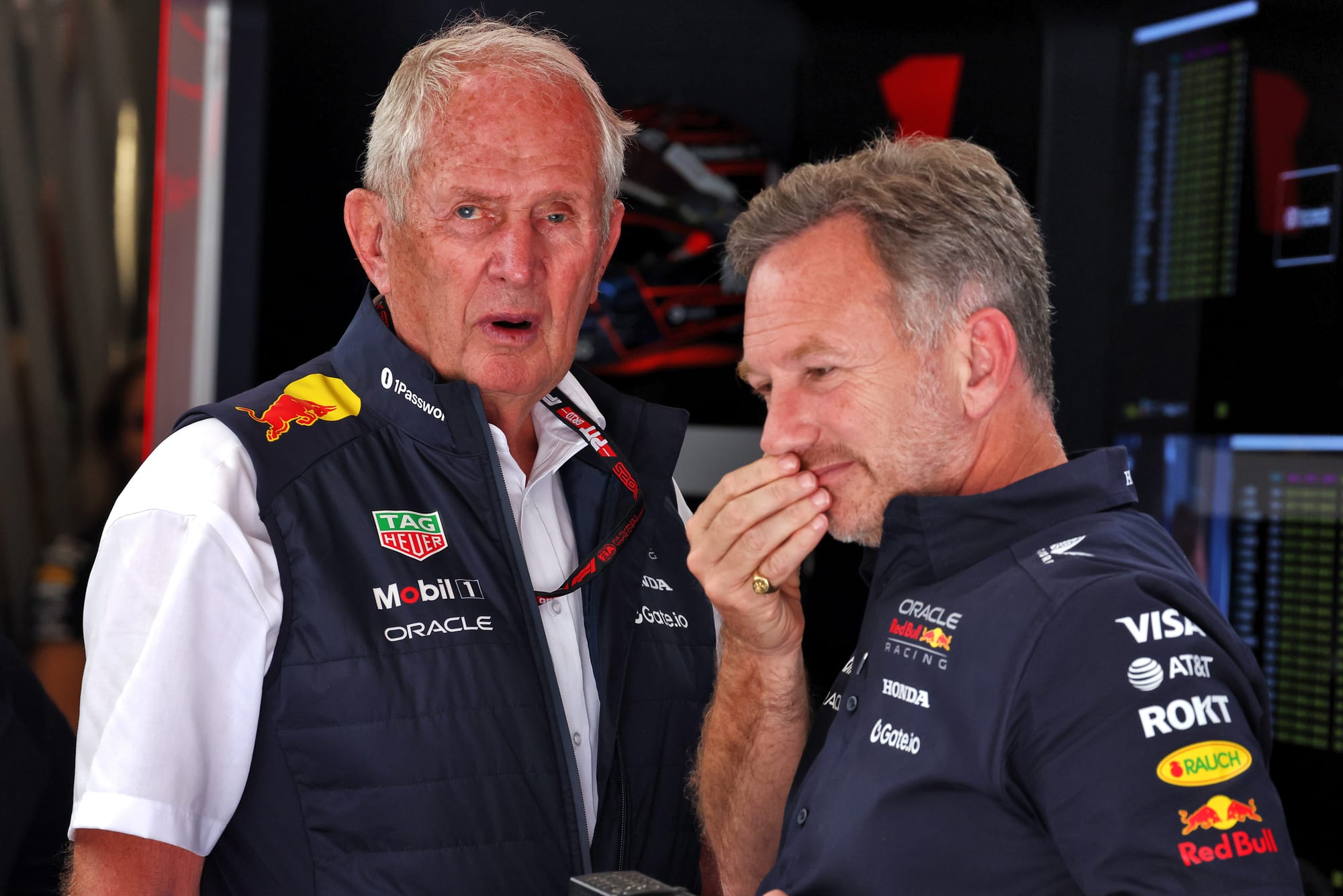
Something like this has been coming since Red Bull co-founder Dietrich Mateschitz died in late 2022. It didn't feel like both of Christian Horner and Helmut Marko would continue at Red Bull - and that's not because of Marko's age...
Between power struggles, high-profile exits, personal scandal and a fallout with star driver Max Verstappen's father Jos, Horner has been dodging bullets left, right and centre for the best part of three years now.
And while it wasn't obvious in terms of results given how Red Bull dominated 2023, the team has been fighting a decline during that time. It has not just slipped from that 2023 peak, it has tumbled down the other side.
There will almost certainly be no championship this year. The second-driver problem has become a full-on crisis. The foundation of the team's structure has cracked, if not crumbled. The driver holding it all together last year might leave.
Horner has not been the direct cause of all that, but he has been at the centre of it. And while we don't know the exact reason that led to him being relieved of his responsibilities, his exit is the consequence of all that's engulfed Red Bull in recent years.
The key question now is whether it will stop the rot or if Red Bull's decline is irreversible.
A clean break
Edd Straw
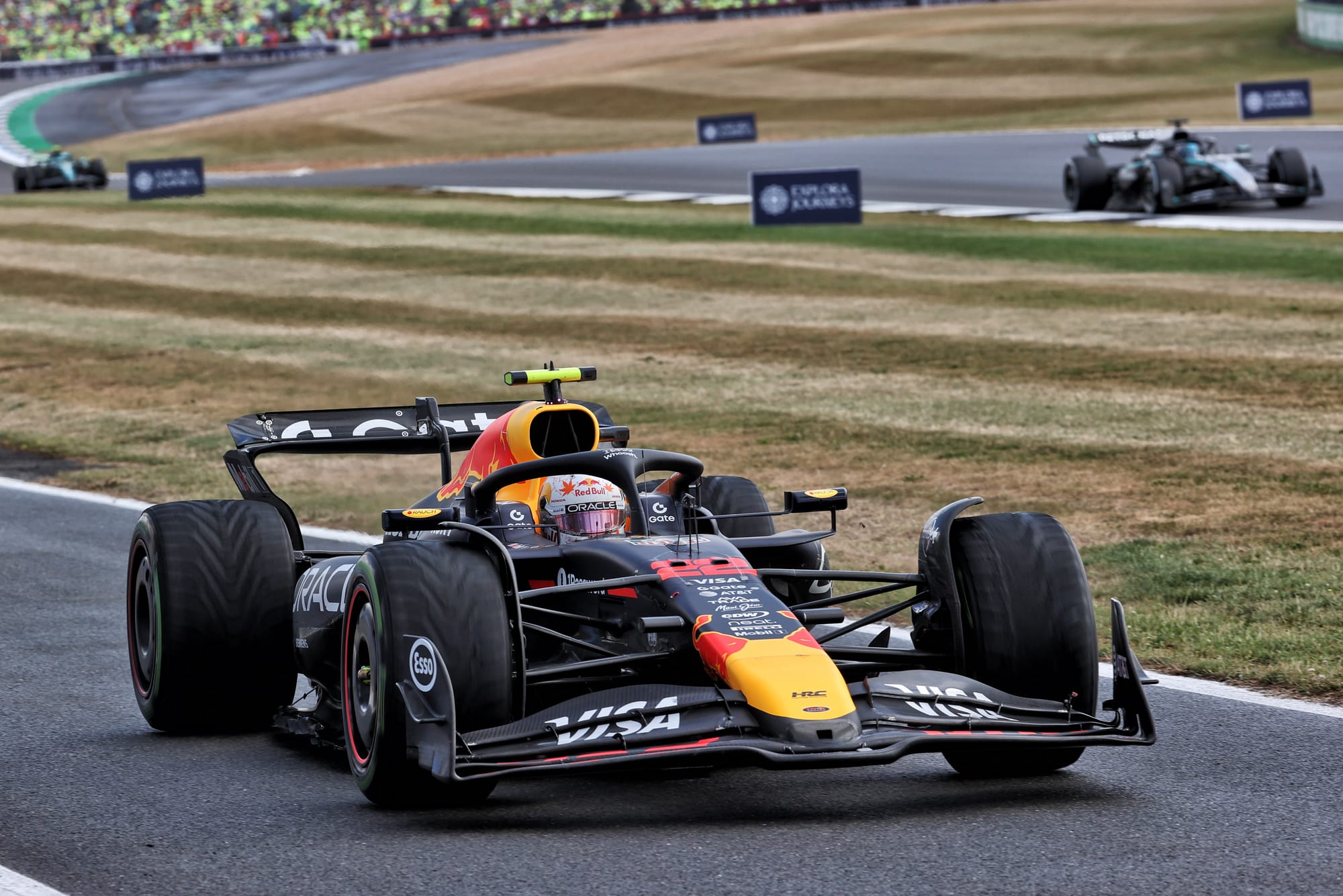
Horner's departure now means there's a clean break between the first two decades of Red Bull and what might be considered the next chapter in 2026. That's marked by what Horner will consider a big part of his legacy - the in-house power unit programme - making it a fully-integrated works team for the first time.
There has been a very obvious changing of the guard of late with the departure of Adrian Newey, Jonathan Wheatley and Rob Marshall - among others - with Horner's exit the final confirmation that Red Bull has now moved decisively into its next phase.
Exactly what that will bring is difficult to say given so much has changed, including that of its parent company given what was once effectively Dietrich Mateschitz's personal project into something more corporate.
Red Bull has the facilities and resources to win many more races and titles and this latest change presumably increases the chances of prize asset Max Verstappen staying on. It potentially faces a tough rebuilding period as the team moves into this new era but, given the instability of political battles of the past 18 months, one way or another it was almost inevitable that something had to change.
A move to keep hold of Verstappen?
Jon Noble
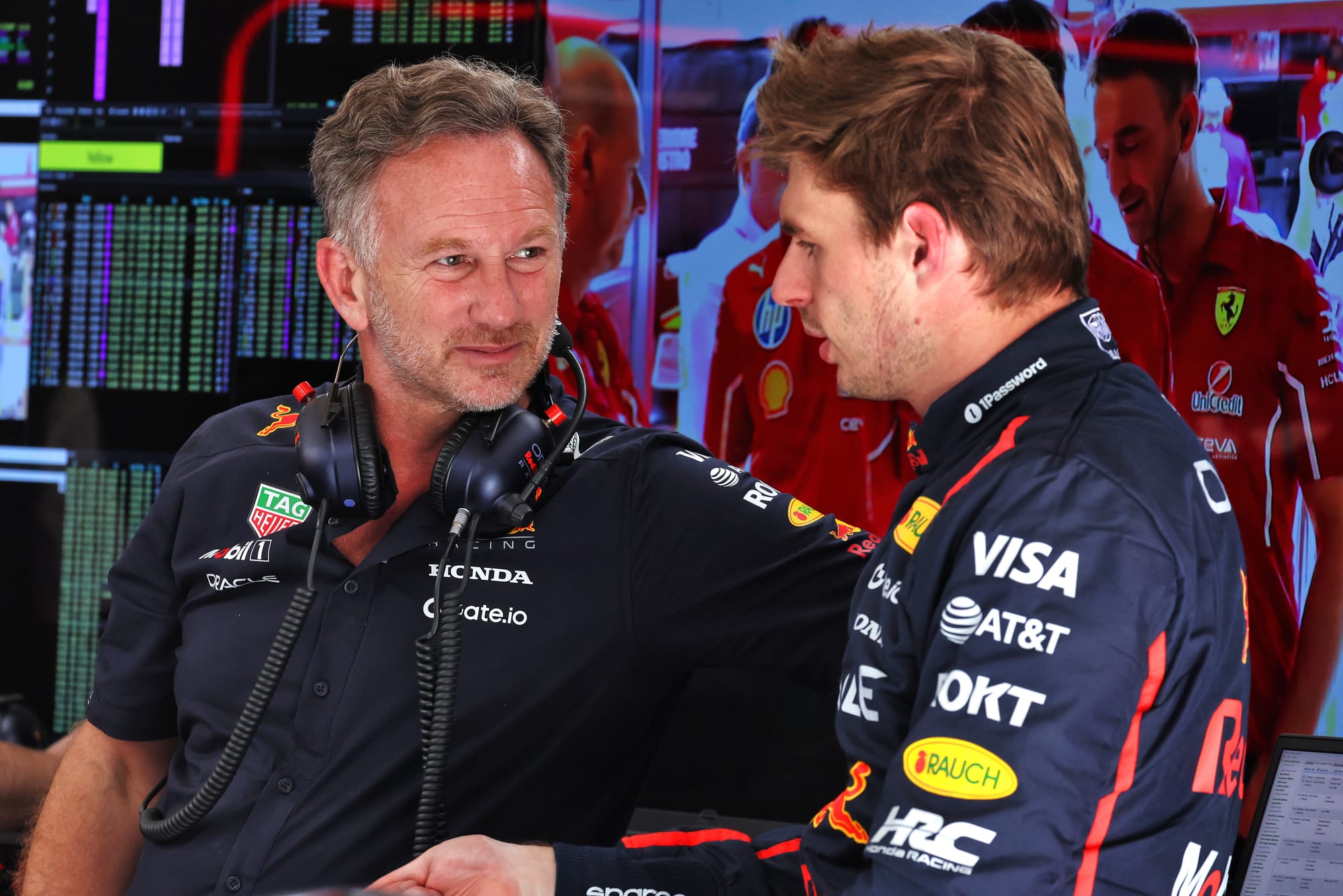
All empires fall eventually. It is the way of things.
That famous quote seems apt for what is undoubtedly a significant day in the story of Red Bull as it closes its chapter with Christian Horner.
But what is perhaps most surprising is the out of the blue nature of this one; there was little inkling of such a seismic change being on the cards until the news broke on Wednesday morning.
There has been no explanation for the trigger point, but it comes off the back of both a disappointing season for the squad and the allegations that swirled around Horner last year. Which of those two factors were the ultimate catalyst has not been clarified.
Things certainly seemed to be reaching a head though, with the future of its star asset Verstappen appearing to be central to whether or not Red Bull continued fighting for championships in the future or started a spiral of decline.
Plenty had suggested that if Verstappen left, something he certainly seemed to be toying with, then that would mark the start of a collapse.
Was pressure therefore mounting on Red Bull chief Oliver Mintzlaff to make a change or risk losing its four-time champion, amid the current disappointing form and concerns about the performance of next year's Red Bull engine? We can only guess about that right now.
Ultimately in F1, whatever politics go on in the background and tensions that exist behind closed doors, there is one thing you cannot deny and that is the stopwatch.
And for Red Bull right now, as it faces failing to win a championship for the first time since 2020, the results were simply not good enough to ignore everything else.
Horner's early mastery of F1 politics
Glenn Freeman
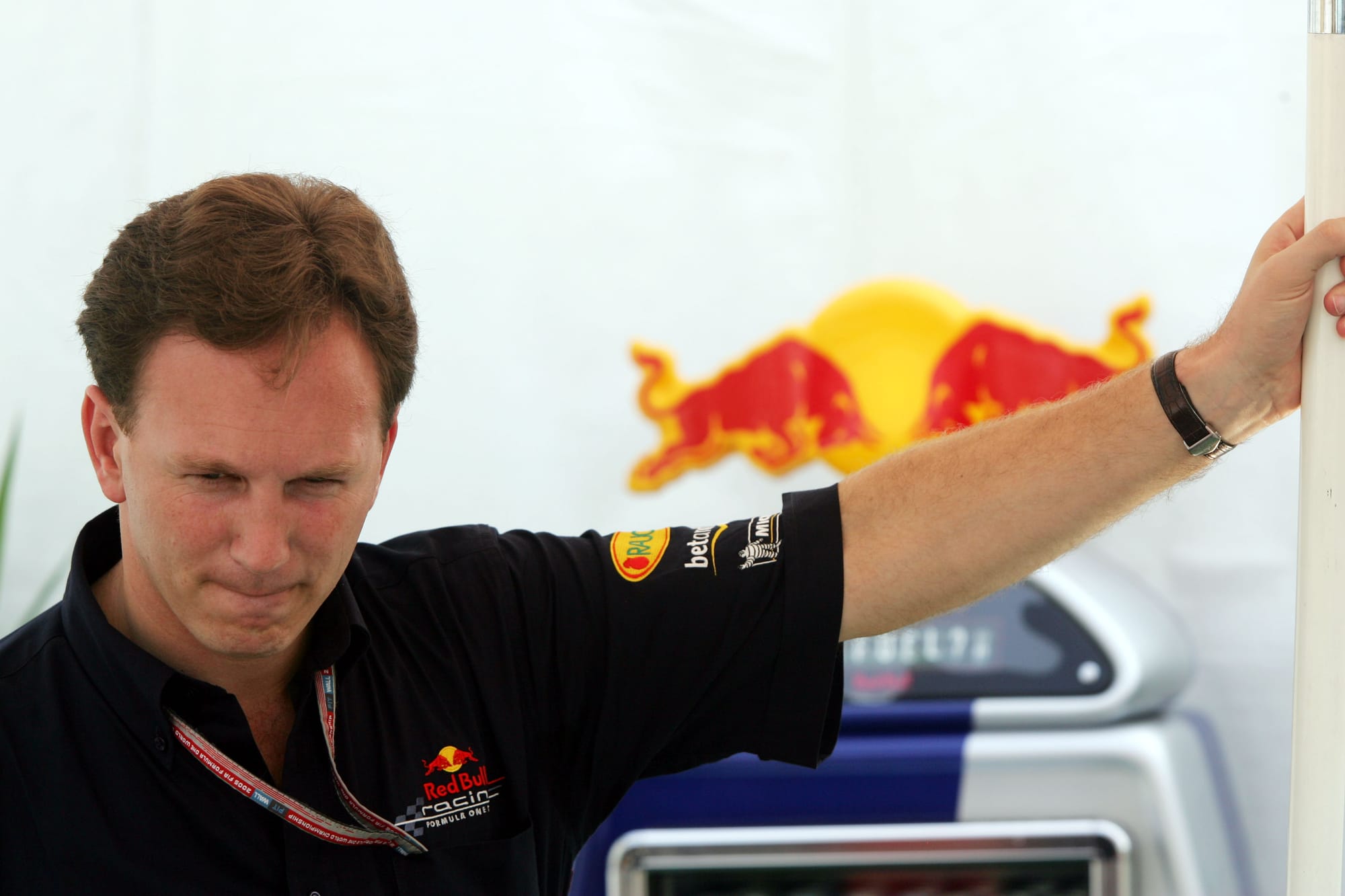
From the moment Christian Horner arrived in the F1 paddock in his early thirties, he set about trying to master the politics of what is often a very hostile environment.
While Horner leaves his role as one of the big dogs of the paddock, 20 years ago he was the baby, thrown into the deep end with F1 titans such as Jean Todt, Ron Dennis, Frank Williams and Flavio Briatore still ruling the roost.
On his first race weekend in Australia he went against the majority and joined Ferrari and Jordan in refusing to agree to Minardi being allowed to run 2004-spec cars on cost and safety grounds.
Later that year he accompanied Ron Dennis in representing the Michelin teams who boycotted the US GP at Indianapolis. It might not have been so obvious back then, but looking back with the benefit of hindsight at how much, and often how well, Horner has played the politics of F1 during his career, he'd clearly set his stall out to learn as much as he could about what it took to be a serious player in a cut-throat world.
If you don't master the politics of being an F1 team boss, you won't survive five minutes, let alone two decades.
A short-term nightmare
Jack Benyon
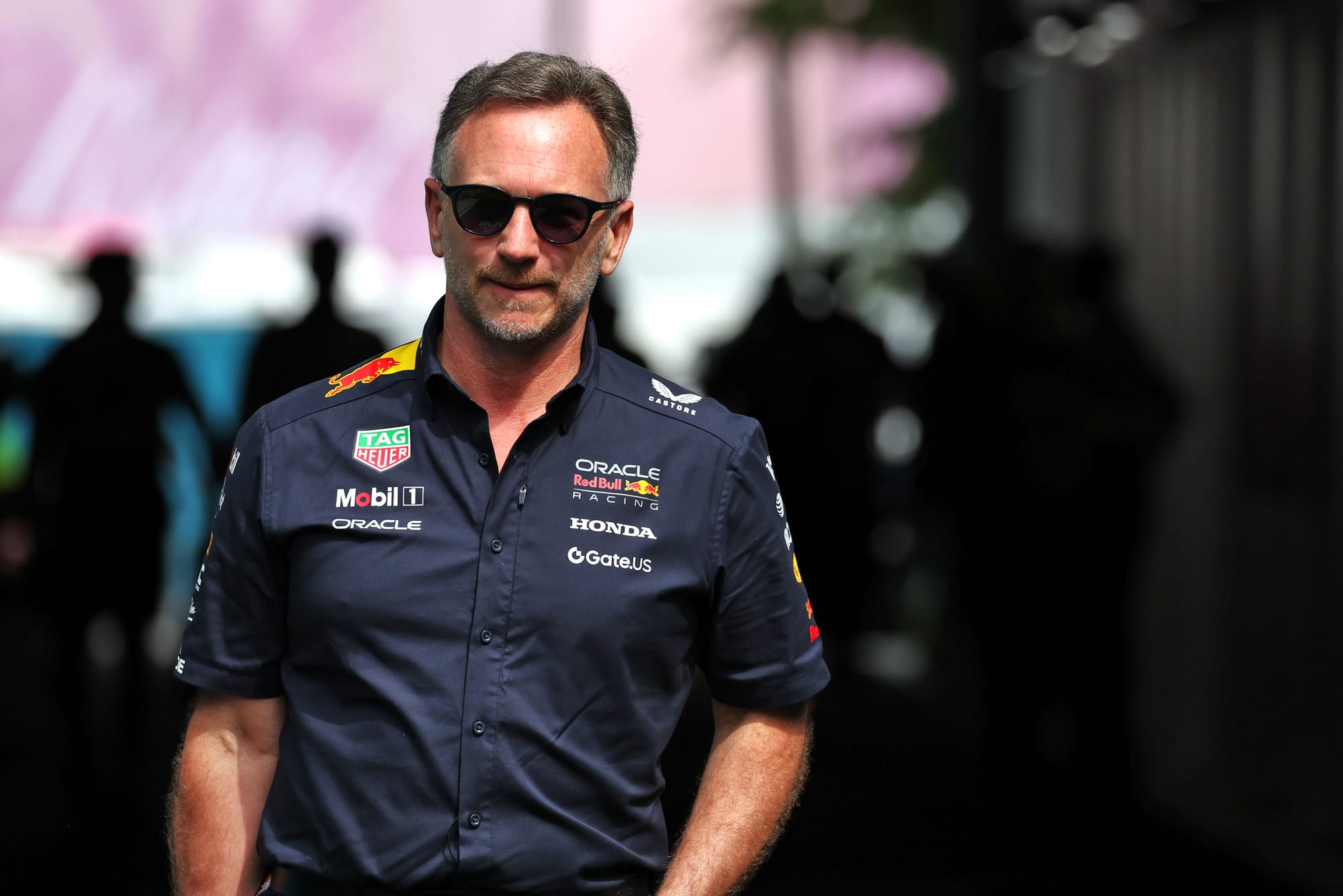
I'm shocked by the timing of this.
Why now? I'm sure there's going to be much more to this story.
It seems to me there were more obvious times in the past to make this decision. Doing it now, mid-season, in the wake of strong rumours about Verstappen's future at the team, appears like it could be a short-term nightmare.
Equally, his replacement Laurent Mekies might be the person with the fresh ideas to weather the storm, and perhaps Red Bull feels like making the change now might be a reason for Verstappen to stay on longer into the future. Maybe that's wide of the mark, but there don't appear to be many logical reasons for making this change now that don't add up to taking a big risk.
Mekies was always a massive fan of Yuki Tsunoda, so perhaps the latter is in for a happier time as he gets to grips with life at Red Bull, too.


